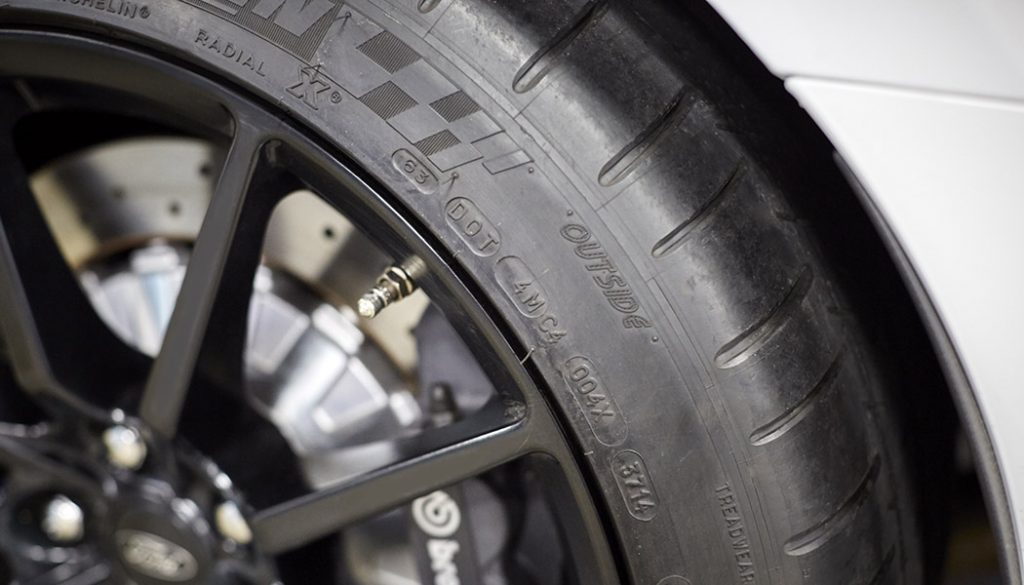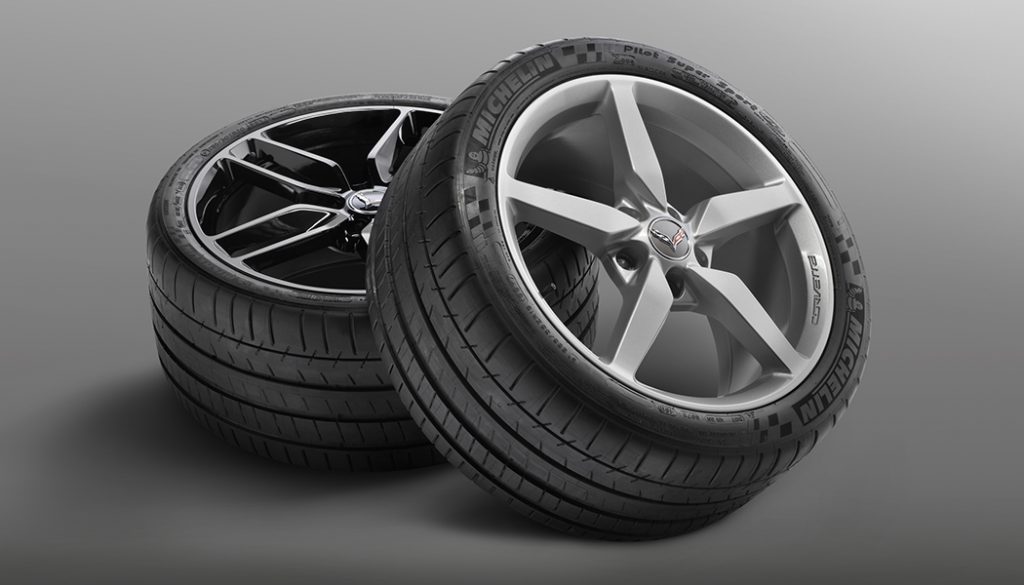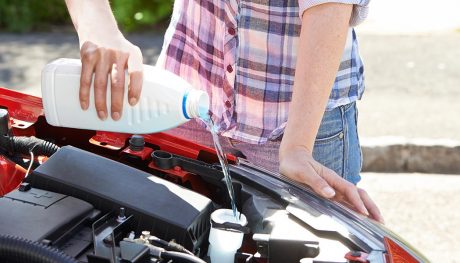Summer Tires – Pros, Cons, and Questions
What are summer tires; and why would you want a set? In the tire manufacturers’ never-ending quest to sell Americans rubber, summer, or “performance” tires are offered to those enthusiasts who want their rubber to compliment the performance of their sports car or sedan.
Performance is the raison d’être for summer-specific tires. Their sticky tread, big footprint, excellent grip on both dry and wet surfaces make them the perfect choice for transferring torque to the pavement. Want proof? “Max performance summer tires” come stock on high-end performance rides like every Porsche (except the Cayenne), all Corvettes, the Viper, all Ferraris and more.
If you enjoy sporty, aggressive, driving, a set of summer tires on your ride will give you a better driving experience than all-season (A/S) rubber. However, like all tires, there are tradeoffs. We’ll cover the biggest in just a bit. But if you live in a part of the country that rarely dips below 44 degrees summer tires may just be your best bet.
What Is a Summer Tire?
Tires can generally be lumped into two categories, those that claim to be good in all conditions, all-season and all-terrain, and those that specialize like winter or snow, mud, and summer tires. The truth is, those names are more for marketing than an accurate description of capabilities. For example, summer tires are really a three-season tire and all-season tires really shouldn’t be used in extreme cold a la Noth Dakota or International Falls, MN.
So what makes them special? The answer is a tread compound that is more “sticky” than other tires giving it superior traction. Tread design is another differentiator. Summer tire treads have less grooving and sipes resulting in a lot more rubber actually inContact with the road. Lastly, the sidewalls of summer tires are typically stiffer than other rubber. The stiff sidewalls give the tire better performance in curves as it has a greater tolerance of lateral G forces.
The combination of sticky compound, more rubber in actual contact with the pavement, and sidewalls that love carving curves creates a tire with superior performance characteristics. And that is why they come stock on so many sports cars and performance SUVs.

Pros of Summer Tires
Let’s make this clear. Summer rubber is for drivers who regularly take their rides to the track or who get their thrills on switchbacks and twisty roads. The every day commuter can benefit from the performance summer tires deliver, but there are more economical tire solutions for “routine” driving.
Speaking of performance:
- Thanks to the sticky compound, summer tires provide exceptional acceleration and braking on both dry and wet surfaces. The few grooves that are present efficiently evacuate water making summer tires less subject to hydroplaning.
- Track drivers can unleash their engines when driving on this rubber. Most have higher speed ratings than other types. It’s not uncommon to find summer tires with speed ratings of W and up.
- Grippy tread, more rubber meeting the road, and stiffer sidewalls means less roll resistance and that translates into better fuel economy.
- Summer tires have their advantages but most importantly they have the ability to complement and bring out the best in your ride’s performance characteristics. Whether it is optimizing acceleration, showing off those Brembo brakes, or fully utilizing that expensive racing tuned suspension.

Cons of Summer Tires
If you drive a high-end sports car you’re probably wondering what the downside of summer tires is particularly since we just got done telling you they are the best thing since sliced bread for your racing machine. Well, like all tires, there are compromises.
- That grippy compound that sticks to the pavement can tend to stick too well and as a result, leave a little rubber on the road. Tread durability is an issue. If you really use these tires the way they were designed to be used, you’ll wear them out faster than a set of all-season tires. The warranty on these tires ranges from 0 to 50,000 miles. However, all-season warranties start at 30,000 and top out at 80,000.
- Another quirk of the tread design can cause early replacement in areas that get heavy rainstorms on a regular basis (think SW Florida summers). Summer tires are amazing on wet pavement until the tread wears down to 4/32 of tread. At that point it becomes vulnerable to hydroplaning. All-season tires don’t reach that condition until the tread has worn down to 3/32 of an inch.
- They are called summer tires for a reason. The sticky compound used for the tread really likes warm temperatures. When colder weather (less than 44 degrees) arrives, the summer compound tends to stiffen up losing all the attributes that give the tires their grip and handling. That’s not to say you can’t drive them on snow. You can but it’s akin to taking on a black diamond trail at Jackson Hole with a pair of water or cross-country skis. Technically they are both skis but neither match a good downhill ski.
If you have mega bucks invested in a high-performance vehicle, the economic viability of summer tires probably isn’t a concern for you. You are going to get the rubber that will give you the best performance you can get. So, when you change out tires in the fall or winter, remember not to store your summers in an unheated garage. Put them in an area where the temperature is unlikely to drop below 50 degrees like the basement or a spare guest bedroom living large). Dedicated summer rubber is not for everyone, but for those rides that can benefit from them, there is no finer rubber to be had.






